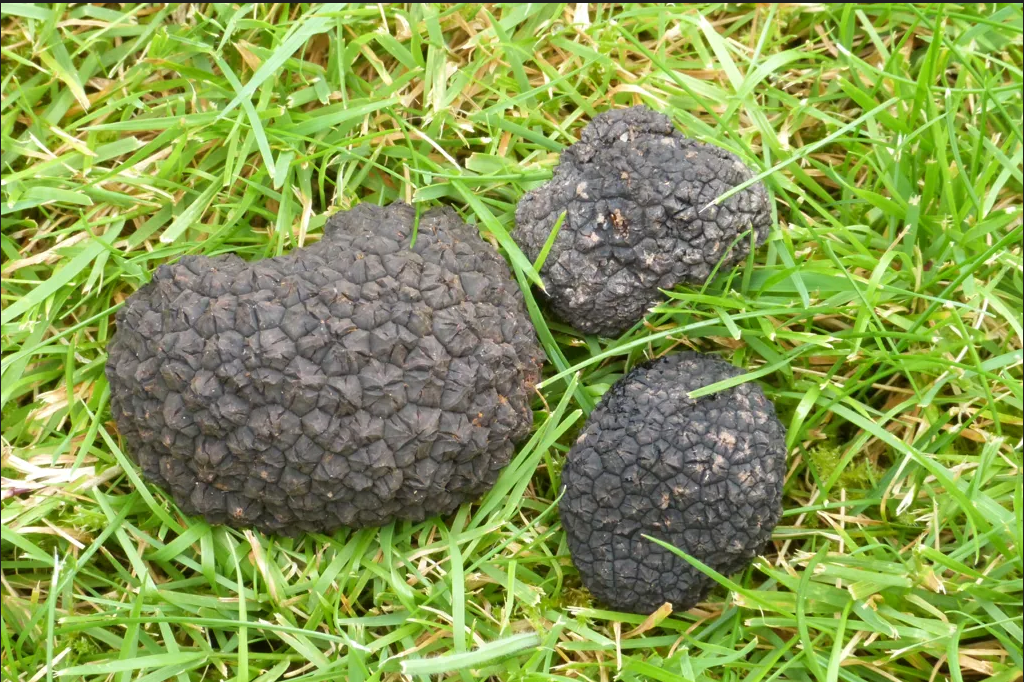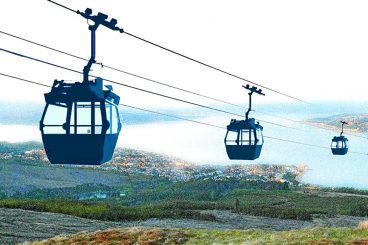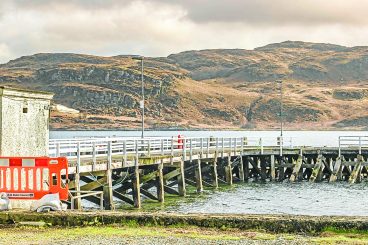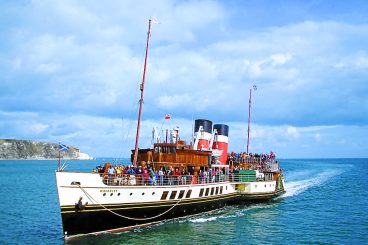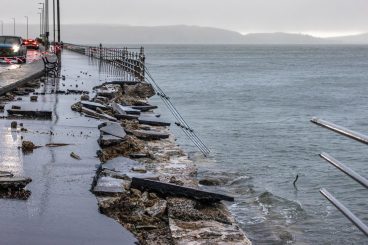Paul W. Thomas, an honorary professor at the University of Stirling and a fellow Bute resident, captivated the members of the Bute Museum with his discussion about edible fungi at a talk recently.
In the UK, native wild truffles are now in short supply due to the clearance of formerly forested areas.
Paul has pioneered the cultivation of truffles in the UK and established The National Truffle Center here on Bute.
Truffles are amongst the most highly valued of all fungi.
They grow on the root system of living trees.
Paul has devised a technique for growing truffle fungi in a laboratory and introducing it to native tree roots in a sterile setting.
The young saplings are then nurtured for twelve months before planting out in limestone enriched soil, as they like alkaline conditions.
Bute’s climate suits truffle production with the wet summers and the mild winters.
Using state-of-the-art climate model projections, Paul predicts that truffle yields in Europe will decline because of the effects of climate change, so although the crop can take 6 years to mature, the future looks lucrative for the UK truffle.
Paul’s research has focused on certain species of mycorrhizal fungi.
This fungi has the ability to pass water and nutrients to the tree, and the plant in turn supplies the fungi with some of the food that it needs to grow.
He went on to discuss the progress being made in one group of fungi known as the blue milk cap mushroom.
These are incredible edible mushrooms, protein rich, high in fibre and essential fatty acids.
As with the truffle, the mycorrhizal fungi for this blue mushroom can be cultivated in the lab and the roots of young plants inoculated.
The tree and the fungi then thrive together co-operatively in a symbiotic relationship.
These mushrooms can provide a valuable food source for millions of people while capturing carbon, reducing deforestation for intensive farming, there is no need for fertilisers or additional water and no methane emissions.
Producing an edible crop alongside trees would lessen the effects of climate change.
Paul spoke passionately about producing food in this way but emphasised that it needs political will and investment to inoculate trees as part of the national or international tree planting programme.
He certainly gave members a lot of food for thought.
The next talk on Tuesday, December 3, will be given by Jason Coles from Dunoon Divers – he will be talking about Marine Life on Shipwrecks in the Clyde.
Potential new members are very welcome.



